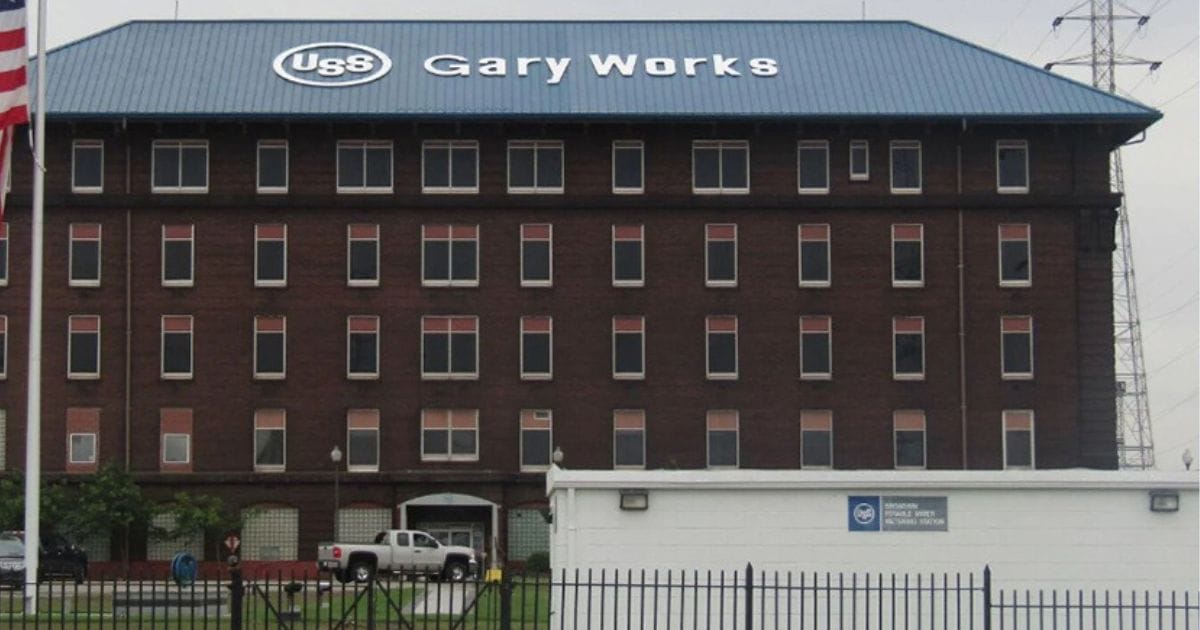In 1906, U.S. Steel founded the city of Gary with its Gary Works operation.

In 1906, the United States Steel Corporation began operations in Gary, Indiana. Gary was founded as a Midwest industrial production center by the executive committee of U.S. Steel. Initially, the company brought wealth and development to our city. The city’s economic well-being grew as the steel mill grew. For decades, Gary thrived and was a hub for those seeking factory employment. Gary became a destination for Black Americans during the Great Migration. However, the tide turned when the company began modernizing the steel mill. There were several layoffs as many of the jobs were computerized and mechanized.
In the early 2000s, U.S. Steel claimed they were being over-assessed by the Calumet Township Assessor. They claimed their current tax amount hurt their competitiveness as foreign steel companies began to increase their exports to the United States. In 2001, Calumet Township valued the property at $269,801,300, but the company claimed it was only worth $90,000,000. Following the company’s failed local appeal, the steel mill sued Calumet Township in a final appeal to the Court. Because of the steel mill’s failing competitive ability, the Indiana Legislature reconfigured steel mill valuation methods. The first change came in 2003 with House Enrolled Act 1858 which allows U.S. Steel to calculate the true tax value of their steel mill. Other bills followed in 2005 and 2011 with Senate Enrolled Act 327, House Enrolled Act 1001 and Senate Enrolled Act 490. Each bill changed the valuation methods for integrated steel mills and their equipment. Codified in law, U.S. Steel has calculated its own property taxes instead of a neutral party since 2003. This has had a cataclysmic effect on our city for the past two decades.
This amounts to millions in lost financial resources for the city, county and township. As a result, Gary’s budget has been heavily restricted. In 2002, the total budget for the City of Gary was close to $68 million. By 2012 after U.S. Steel’s legislation, the budget dwindled to $47 million and faced a deficit of $10 million to $15 million. Budget restrictions resulted in underfunded public programs. In 2009, the Gary Sanitary District, The Gary Storm Water Management District, The Gary Public Transportation Corporation and the Gary/Chicago International Airport Authority, petitioned the state for relief from property tax caps.
In 2020, Gary’s tax rates were the highest in the state. The tax bills for most homes and businesses were calculated at $7.97 for every $100 dollars of assessed value. Clearly, our residents – many of whom are already struggling – are supplementing the costs for a billion-dollar company.
New changes have added another layer– the company’s foreign sale. Nippon Steel – a Japanese company – purchased U.S. Steel for $14.1 billion in December 2023. Steel Executives look forward to increasing their ‘global footprint,’ but what about their existing local footprint? The sale’s fiscal impact on Gary, Calumet Township and Lake County is unclear. Many residents have raised concerns regarding Nippon’s lack of union input and potential plant closures.
Indiana’s deal with U.S. Steel has placed a significant financial strain on the City of Gary. Gary residents suffer health issues, environmental issues and a loss of miles of lakefront because of U.S. Steel’s operation. Even if U.S. Steel received some relief while they were financially troubled, today, U.S. Steel is thriving, valued at $14.1 billion. It’s time to overturn the legislative action and require U.S. Steel to pay its fair share of taxes like every other business and resident in the City of Gary.






